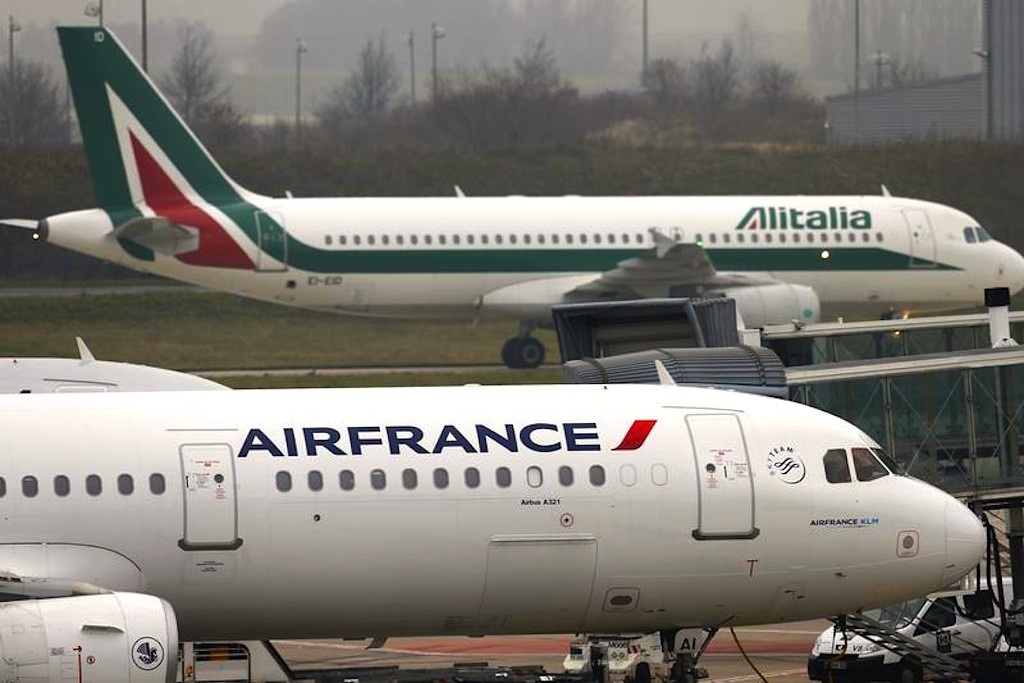- CBN Releases $300m to Foreign Airlines
To cushion the effect of the cash squeeze affecting foreign airlines flying into Nigeria, the Central Bank of Nigeria (CBN) has released $300 million out of the $600 million airlines fund stuck in the country.
Some of the airlines have either stopped coming into Nigeria or are threatening to stop because of the inability to remit their money out of the country.
Minister of State (Aviation) Hadi Sirika, who broke the news to the airlines after the Federal Executive Council (FEC) meeting in Abuja, said the balance would soon be released.
Sirika said: “Government through the CBN has made available $300 million out of the $600 million of the airlines’ funds stuck in Nigeria to pay the airlines to demonstrate its commitment to the sector.
“And with devaluation, $600 million could be $1 billion. With government intervention they have been given $300 million and gradually we will clear everything and once that happens, they (airlines threatening to quit) are not going anywhere.”
On the airlines’ threat to leave Nigeria, he said: “I think it is a response to how the industry is doing globally, especially Nigeria with recession, our inability to get the airlines to repatriate their currency that they earn through sales of tickets.
“They find it very difficult to operate and do business. Their inability to get Jet A1 at some point, and for other operational reasons; I did say that these are commercial decisions that the airlines will take but with the way the routes are and with what we have been doing to correct these things that any airline will pull out.
“A 100 per cent of foreign exchange being required by local airlines is being provided now. Aviation is dollar denominated, you buy aircraft in dollar, you service in dollar, you train your crew in dollar; you do everything in dollar. And we simply do not have the dollar to pay these airlines. But now as we are talking
“Nigeria has a population of 177 million serving west and central Africa, 600 million people market, double that of United States, half of India, equal to Europe; so this is a very important market and they know and they will stay here. I believe we are also offering them incentives.”
The government, he said, has been talking to airlines, such as Egypt Air, British Airways, Turkish Air, which fly in Nigeria with undesirable aircraft while they put better aircraft on other routes
“However, some of them are constrained by some of the infrastructure we have in place. For example, Emirate will love to bring the kind of aircraft they fly around the world but the apron in Abuja is not supporting that service. That is why the aircraft they take to Lagos is different from the one they take to Abuja.
“That inadequacy is also being addressed and once that is done, we will have befitting aircraft coming. This has always been a challenge.
“But the most important incentive is that between now and Wednesday we will appoint transaction adviser for the national carrier. Once that is in place, Nigerians will have options, there will be competition, good aircraft and this will bring the price down.” Sirika, a pilot, said.
The minister also announced that yesterday’s Federal Executive Council (FEC) meeting approved additional N1.57 billion for the rehabilitation and refurbishment of the Port Harcourt airport.
According to him, FEC approved the rehabilitation cost of the international wing of the airport from N777,726,669.30 to N1,684,520,310.58 for the original contractor Messes Entaba.
The second project, he said, is the refurbishment of the airport terminal building phase II domestic wing from N746,830,782.12 to N1,411,662,855.67
“So, very soon we will complete that very important airport, especially the arrival hall. Port Harcourt airport has been tagged the worst airport in the world but by the grace of God and the wisdom of council, it will be completed,” he added.
Sirika also said FEC approved the ratification of climate change Paris agreement and bilateral agreement against double taxation with Kenya.
He said there would be improved security and more parking spaces at the Nnamdi Azikiwe International Airport, Abuja after it is concessioned.
Sirika said: “Once the airport is concessioned, all these will take place. Just be patient in the next 24 to 36 months, most of these things will be in place


 Naira4 weeks ago
Naira4 weeks ago
 News4 weeks ago
News4 weeks ago
 Naira4 weeks ago
Naira4 weeks ago
 Travel3 weeks ago
Travel3 weeks ago
 Naira3 weeks ago
Naira3 weeks ago
 Jobs4 weeks ago
Jobs4 weeks ago
 Naira3 weeks ago
Naira3 weeks ago
 Investment4 weeks ago
Investment4 weeks ago





























